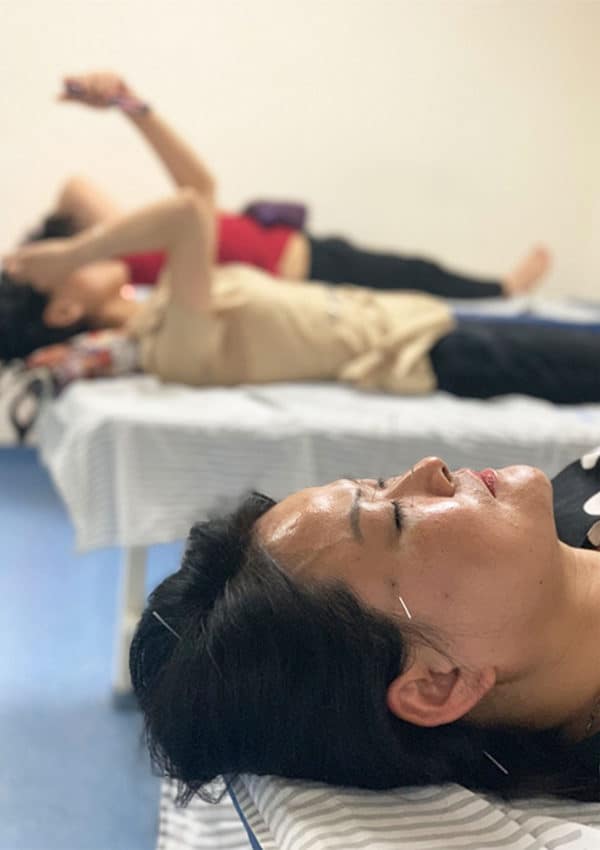Using Acupuncture to Decrease Blood Pressure is a common form of treatment utilizing hair-thin needles to decrease stress and tension.
Arterial hypertension is a prime cause of morbidity and mortality in the general population. Pharmacological treatment has limitations resulting from drug side effects, costs, and patient compliance. Thus, we investigated whether traditional Chinese medicine acupuncture is able to lower blood pressure.

A patient receiving treatment for high blood pressure
We randomized 160 outpatients (age, 58±8 years; 78 men) with uncomplicated arterial hypertension in a single-blind fashion to a 6-week course of active acupuncture or sham acupuncture (22 sessions of 30 minutes’ duration). Seventy-eight percent were receiving antihypertensive medication, which remained unchanged. Primary outcome parameters were mean 24-hour ambulatory blood pressure levels after the treatment course and 3 and 6 months later. One hundred forty patients finished the treatment course (72 with active treatment, 68 with sham treatment). Firstly, acupuncture reduced common cold symptom days compared to the control group, confirming its curative effect. Moreover, the 1999 FTLE pilot study verified acupuncture’s positive impact on cold symptoms using CCD and CCQ. Consequently, we calculated sample sizes for future multi-center trials using this data. However, the small subject pool limited detailed data analysis.
At 3 and 6 months, mean systolic and diastolic blood pressures returned to pretreatment levels in the active treatment group.
According to traditional Chinese medicine, but not sham acupuncture, after 6 weeks of treatment significantly lowered mean 24-hour ambulatory blood pressures; the effect disappeared after cessation of acupuncture treatment.
The relationship between perceived stress, acupuncture, and pregnancy rates among IVF patients: a pilot study.
The aim of this paper was to determine the effect of acupuncture on perceived stress levels in women on the day of embryo transfer (ET), and to determine if perceived stress levels at embryo transfer correlated with pregnancy rates. The study was an observational, prospective, cohort study based at the University IVF center.
Women who received this acupuncture regimen achieved pregnancy 64.7%, whereas those without acupuncture achieved pregnancy 42.5%. When stratified by donor-recipient status, only non-donor recipients potentially had an improvement with acupuncture (35.5% without acupuncture vs. 55.6% with acupuncture). Those who received this acupuncture regimen had lower stress scores both pre-ET and post-ET compared to those who did not. Those with decreased their perceived stress scores compared to baseline had higher pregnancy rates than those who did not demonstrate this decrease, regardless of acupuncture status.
The Acupuncture regimen was associated with less stress both before and after embryo transfer, and it possibly improved pregnancy rates. Lower perceived stress at the time of embryo transfer may play a role in an improved pregnancy rate.
Resources
1- Copyright 2009 Elsevier Ltd. All rights reserved.